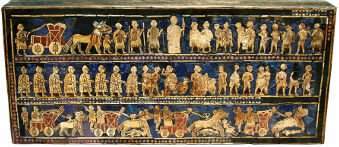Monarchy it is a political system that has a monarch as leader of the state. The meaning of monarchy is also the king and royal family of a particular country. In this case, monarchy is the same as royalty. Hereditary monarchy is the most common system for choosing a monarch.
According to the Aristotelian tradition, monarchy is the political form in which the supreme power of the state is concentrated in the will of a single person. When legitimacy was considered to come from a supernatural divine right, sovereignty was exercised as a right of its own.
The myth of the "divine right" of kings was based on the idea that God chose the king to be in power, and the king was responsible only to Him.
Constitutional monarchy
The constitutional monarchy emerged in Europe at the end of the 18th century, after the Revolution French, although some of its ideas have not been unknown to the British monarchy since the century XVI. Since the mid-nineteenth century, constitutional monarchy has often presented a democratic form of state, with constitutional rules that flow from that form.
In the Constitutional Monarchy or Parliamentary Monarchy there is a Parliament (elected by the people) that exercises the Legislative Power. Having no legislative role, the king has the function of guaranteeing the normal functioning of the institutions. As head of government, a prime minister is elected whose actions are overseen by a parliament. Japan is the oldest monarchy in the world and has a parliamentary system of government.
Currently, the existing monarchies in Europe are constitutional or parliamentary, with the leadership of the government being exercised by a Prime Minister or the president of a Council of Ministers.
Absolute Monarchy
Absolute monarchy was the dominant form of government in most European states between the 16th and 18th centuries. In this type of monarchy, the king was the supreme head of the nation, exercising executive and legislative powers. He was primarily responsible for the fate of the people. The famous phrase “the State is I”, authored by the French King Louis XIV, reproduces the way of governing of the absolutist monarchs of that period.
The absolute monarchy was established in view of the difficulties of accountability of the great feudal lords who excessively conditioned their support to the king. During the 18th century, the absolute monarchy changed its character, reforms were attempted in order to introduce new necessary bodies (enlightened despotism).
Read more about despotism.
Learn more about absolutism and some of your features.
Monarchy and Republic
The main characteristics and differences between these two systems of government are:
Monarchy
- The monarch's office is for life (or as long as he is able to govern).
- The King who is in power does not answer for political acts before the people who are governed
- The monarchic succession is hereditary, that is, it is one of the descendants of the monarch who will assume the throne.
Republic
- The President of the Republic exercises his function during a term that has the duration stipulated in the constitution of the country in question (in many cases it is 4 years);
- The government is established through elections, it is chosen through the vote of the people;
- In irregular circumstances, the government can be disassociated. In the case of the president, the impeachment.
Elective Monarchy
Another form of monarchic government is the Elective Monarchy, in which the head of government is elected by vote and holds office for life. Vatican City is an example of an Elective Monarchy, with the Pope as the supreme leader.

